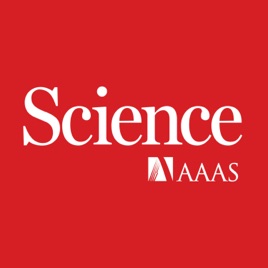
Advertise on podcast: Science Magazine Podcast
Rating
4.3 from
Country
This podcast has
525 episodes
Language
Publisher
Explicit
No
Date created
2006/01/25
Average duration
37 min.
Release period
8 days
Description
Weekly podcasts from Science Magazine, the world's leading journal of original scientific research, global news, and commentary.
Social media
Check Science Magazine Podcast social media presence
Podcast episodes
Check latest episodes from Science Magazine Podcast podcast
What makes snakes so special, and how space science can serve all
2024/02/22
On this week’s show: Factors that pushed snakes to evolve so many different habitats and lifestyles, and news from the AAAS annual meeting
First up on the show this week, news from this year’s annual meeting of AAAS (publisher of Science) in Denver. News intern Sean Cummings talks with Danielle Wood, director of the Space Enabled Research Group at the Massachusetts Institute of Technology, about the sustainable use of orbital space or how space exploration and research can benefit everyone.
And Newsletter Editor Christie Wilcox joins host Sarah Crespi with an extravaganza of meeting stories including a chat with some of the authors of this year’s Newcomb Cleveland Prize–winning Science paper on how horses spread across North America.
Voices in this segment:
William Taylor, assistant professor and curator of archaeology at the University of Colorado Boulder’s Museum of Natural History
Ludovic Orlando, director of the Centre for Anthropobiology and Genomics of Toulouse
University of Oklahoma archaeologists Sarah Trabert and Brandi Bethke
Yvette Running Horse Collin, post-doctoral researcher Paul Sabatier University (Toulouse III)
Next on the show: What makes snakes so special? Freelance producer Ariana Remmel talks with Daniel Rabosky, professor in ecology and evolutionary biology at the University of Michigan, about the drivers for all the different ways snakes have specialized—from spitting venom to sensing heat.
This week’s episode was produced with help from Podigy.
About the Science Podcast
Authors: Sarah Crespi; Ariana Remmel; Christie Wilcox; Sean Cummings
Episode page: https://www.science.org/doi/10.1126/science.zabhbwe
more
What makes blueberries blue, and myth buster Adam Savage on science communication
2024/02/15
Why squeezing a blueberry doesn’t get you blue juice, and a myth buster and a science editor walk into a bar
First up on the show this week, MythBusters’s Adam Savage chats with Science Editor-in-Chief Holden Thorp about the state of scholarly publishing, better ways to communicate science, plus a few myths Savage still wants to tackle.
Next on the show, making blueberries without blue pigments. Rox Middleton, a postdoctoral fellow at the Dresden University of Technology and honorary research associate at the University of Bristol, joins host Sarah Crespi to talk about how blueberries and other blue fruits owe their hue to a trick of the light caused by specialized wax on their surface.
In a sponsored segment from the Science/AAAS Custom Publishing Office, Erika Berg, director and senior editor of custom publishing, interviews professor Jim Wells about organoid therapies. This segment is sponsored by Cincinnati Children’s Hospital.
This week’s episode was produced with help from Podigy.
About the Science Podcast
Authors: Sarah Crespi; Holden Thorp
Episode page: https://www.science.org/doi/10.1126/science.z7ye2st
more
A new kind of magnetism, and how smelly pollution harms pollinators
2024/02/08
More than 200 materials could be “altermagnets,” and the impact of odiferous pollutants on nocturnal plant-pollinator interactions
First up on the show this week, researchers investigate a new kind of magnetism. Freelance science journalist Zack Savitsky joins host Sarah Crespi to talk about recent evidence for “altermagnetism” in nature, which could enable new types of electronics.
Next on the show, producer Meagan Cantwell talks with Jeremy Chan, a postdoctoral researcher at the University of Naples Federico II, about how air pollution can interfere with pollinator activities—is the modern world too smelly for moths to do their work?
This week’s episode was produced with help from Podigy.
About the Science Podcast
Authors: Sarah Crespi; Meagan Cantwell; Zack Savitsky
Episode page: https://www.science.org/doi/10.1126/science.zz09cbu
more
A new way for the heart and brain to ‘talk’ to each other, and Earth’s future weather written in ancient coral reefs
2024/02/01
A remote island may hold clues for the future of El Niño and La Niña under climate change, and how pressure in the blood sends messages to neurons
First up, researchers are digging into thousands of years of coral to chart El Niño’s behavior over time. Producer Kevin McLean talks with Staff Writer Paul Voosen about his travels to the Pacific island of Vanuatu to witness the arduous task of reef drilling.
Next on the show, host Sarah Crespi talks with Veronica Egger, a professor of neurophysiology at the Regensburg University Institute of Zoology, about an unexpected method of signaling inside the body. Egger’s work suggests the pulse of the blood—the mechanical drumming of it—affects neurons in the brain. The two discuss why this might be a useful way for the body to talk to itself.
This week’s episode was produced with help from Podigy.
About the Science Podcast
Authors: Sarah Crespi; Kevin McLean; Paul Voosen
Episode page: https://www.science.org/doi/10.1126/science.z1hqrn2
more
A hangover-fighting enzyme, the failure of a promising snakebite treatment, and how ants change lion behavior
2024/01/25
On this week’s show: A roundup of stories from our daily newsletter, and the ripple effects of the invasive big-headed ant in Kenya
First up on the show, Science Newsletter Editor Christie Wilcox joins host Sarah Crespi to talk about snake venom antidotes, a surprising job for a hangover enzyme, and crustaceans that spin silk.
Next on the show, the cascading effects of an invading ant. Douglas Kamaru, a Ph.D. student in the Department of Zoology & Physiology at the University of Wyoming, discusses how the disruption of a mutually beneficial relationship between tiny ants and spiny trees in Kenya led to lions changing their hunting strategies.
This week’s episode was produced with help from Podigy.
About the Science Podcast
Authors: Sarah Crespi; Christie Wilcox
Episode page: https://www.science.org/doi/10.1126/science.zd5mbue
more
Paper mills bribe editors to pass peer review, and detecting tumors with a blood draw
2024/01/19
Investigation shows journal editors getting paid to publish bunk papers, and new techniques for finding tumor DNA in the blood
First up on this week’s episode, Frederik Joelving, an editor and reporter for the site Retraction Watch, talks with host Sarah Crespi about paper mills—organizations that sell authorship on research papers—that appear to be bribing journal editors to publish bogus articles. They talk about the drivers behind this activity and what publishers can do to stop it.
Next, producer Zakiya Whatley of the Dope Labs podcast talks with researcher Carmen Martin-Alonso, a graduate student in the Harvard–Massachusetts Institute of Technology Program in Health Sciences and Technology, about improving liquid biopsies for cancer. They discuss novel ways to detect tumor DNA circulating in the blood.
This week’s episode was produced with help from Podigy.
About the Science Podcast
Authors: Sarah Crespi; Zakiya Whatley; Richard Stone
Episode page: https://www.science.org/doi/10.1126/science.zahpt8h
About the Science Podcast: https://www.science.org/content/page/about-science-podcast
more
The environmental toll of war in Ukraine, and communications between mom and fetus during childbirth
2024/01/11
Assessing environmental damage during wartime, and tracking signaling between fetus and mother
First up, freelance journalist Richard Stone returns with news from his latest trip to Ukraine. This week, he shares stories with host Sarah Crespi about environmental damage from the war, particularly the grave consequences of the Kakhovka Dam explosion.
Next, producer Kevin McLean talks with researcher Nardhy Gomez-Lopez, a professor in the department of obstetrics and gynecology and pathology and immunology in the Center for Reproductive Health Sciences at Washington University School of Medicine in St. Louis. The two discuss signaling between fetus and mother during childbirth and how understanding this crosstalk may one day help predict premature labor.
Finally, in a sponsored segment from the Science/AAAS Custom Publishing Office, Erika Berg, director and senior editor for the Custom Publishing Office, interviews Andrew Pospisilik, chair and professor of epigenetics at the Van Andel Institute, about his research into how epigenetics stabilizes particular gene expression patterns and how those patterns affect our risk for disease. This segment is sponsored by the Van Andel Institute.
This week’s episode was produced with help from Podigy.
About the Science Podcast
Authors: Sarah Crespi; Kevin McLean; Rich Stone
Episode page: https://www.science.org/doi/10.1126/science.z5jiifi
more
The top online news from 2023, and using cough sounds to diagnose disease
2024/01/04
Best of online news, and screening for tuberculosis using sound
This week’s episode starts out with a look back at the top 10 online news stories with Online News Editor David Grimm. There will be cat expressions and mad scientists, but also electric cement and mind reading. Read all top 10 here.
Next on the show, can a machine distinguish a tuberculosis cough from other kinds of coughs? Manuja Sharma, who was a Ph.D. student in the department of electrical and computer engineering at the University of Washington at the time of the work, joins host Sarah Crespi to talk about her project collecting a cough data set to prove this kind of cough discrimination is possible with just a smartphone.
This week’s episode was produced with help from Podigy.
About the Science Podcast
Authors: Sarah Crespi; David Grimm
Audio credit for human infant cries: Nicolas Grimault, Nicolas Mathevon, Florence Levréro; Neuroscience Research Center, ENES and CAP team. UJM, CNRS, France.
Episode page: https://www.science.org/doi/10.1126/science.zpuo5vn
About the Science Podcast: https://www.science.org/content/page/about-science-podcast
more
The hunt for a quantum phantom, and making bitcoin legal tender
2023/12/22
Seeking the Majorana fermion particle, and a look at El Salvador’s adoption of cryptocurrency
First up on the show this week, freelance science journalist Zack Savitsky and host Sarah Crespi discuss the hunt for the elusive Majorana fermion particle, and why so many think it might be the best bet for a functional quantum computer. We also hear the mysterious tale of the disappearance of the particle’s namesake, Italian physicist Ettore Majorana.
Next in the episode, what happens when you make a cryptocurrency legal tender? Diana Van Patten, professor of economics in the Yale University School of Management, discusses the results of El Salvador’s adoption of bitcoin in 2021.
This week’s episode was produced with help from Podigy.
About the Science Podcast
Authors: Sarah Crespi; Zack Savitsky
Episode page: https://www.science.org/doi/10.1126/science.zjvhsy8
About the Science Podcast: https://www.science.org/content/page/about-science-podcast
more
Science’s Breakthrough of the Year, and tracing poached pangolins
2023/12/14
Top science from 2023, and a genetic tool for pangolin conservation
First up this week, it’s Science’s Breakthrough of the Year with producer Meagan Cantwell and News Editor Greg Miller. But before they get to the tippy-top science find, a few of this year’s runners-up. See all our end-of-year coverage here.
Next, Jen Tinsman, a forensic wildlife biologist at the U.S. Fish and Wildlife Service, joins host Sarah Crespi to discuss using genetics to track the illegal pangolin trade. These scaly little guys are the most trafficked mammals in the world, and researchers can now use DNA from their scales to find poaching hot spots.
This week’s episode was produced with help from Podigy.
About the Science Podcast
Authors: Sarah Crespi; Meagan Cantwell; Greg Miller
Episode page: https://www.science.org/doi/10.1126/science.zk0pw91
About the Science Podcast: https://www.science.org/content/page/about-science-podcast
more
Farm animals show their smarts, and how honeyguide birds lead humans to hives
2023/12/07
A look at cognition in livestock, and the coevolution of wild bird–human cooperation
This week we have two stories on thinking and learning in animals. First, Online News Editor David Grimm talks with host Sarah Crespi about a reporting trip to the Research Institute for Farm Animal Biology in northern Germany, where scientists are studying cognition in farm animals, including goats, cows, and pigs. And because freelance audio producer Kevin Caners went along, we have lots of sound from the trip—so prepare yourself for moos and more.
Voices in this story:
Christian Nawroth
Annkatrin Pahl
Jan Langbein
Next, audio producer Katherine Irving talks with Claire Spottiswoode, an evolutionary biologist at the University of Cambridge, about her research into cooperation between honeyguide birds and human honey hunters. In their Science study, Spottiswoode and her team found honeyguides learn distinct signals made by honey hunters from different cultures suggesting that cultural coevolution has occurred.
Read a related Perspective.
This week’s episode was produced with help from Podigy.
About the Science Podcast
Authors: Sarah Crespi; David Grimm; Katherine Irving
Episode page: https://www.science.org/doi/10.1126/science.zr3zfn1
more
Basic geoengineering, and autonomous construction robots
2023/11/30
Raising the pH of the ocean to reduce carbon in the air, and robots that can landscape
First up on this week’s show, Contributing Correspondent Warren Cornwall discusses research into making oceans more alkaline as a way to increase carbon capture and slow climate change. But there are a few open questions with this strategy: Could enough material be dumped in the ocean to slow climate change? Would mining that material release a lot of carbon? And, would either the mining or ocean changes have big impacts on ecosystems or human health?
Next, we hear from Ryan Luke Johns, a recent Ph.D. graduate from ETH Zürich, about why we want robots building big rocky structures from found materials: It reduces energy costs and waste associated with construction, and it would allow us to build things remotely on Mars.
This week’s episode was produced with help from Podigy.
About the Science Podcast
Authors: Sarah Crespi; Warren Cornwall
Episode page: https://www.science.org/doi/10.1126/science.z66mytn
more
Podcast reviews
Read Science Magazine Podcast podcast reviews
ASPD1
2023/09/24
More time!
Thanks for the show all!
I love having a science news podcast to learn about stuff I hadn’t really thought about
I wish more time was spent on the in...
more
Manny Camps
2023/11/26
NPR style narration but way more boring
I listen to quite a few science podcasts and this one is by far the most boring one. The presentation of each topic is boring. I want more authentic n...
more
eb ramírez
2023/10/31
Informative
So easy to follow, awesome topics
pcf0080
2022/09/18
One topic
I agree-3 topics are too many
Better to concentrate on only one
Teukolsky
2022/11/15
I wish there was more science in the podcast
The interviews with scientists are usually interesting. I wish more time was spent on going into the science of the articles discussed. I also wish a ...
more
mondomando🍺
2022/11/14
I Prefer multiple topics
In case the main topic does not interest me.
Abu Shibshib
2022/06/16
One Topic
It might be worthwhile to focus on just one topic per episode. Sometimes I find myself interested in only 1 out of three of the topics discussed and t...
more
The Devonian Kid
2022/06/19
Changes not for the better.
I have changed my review from 5 to 2 stars because of two unfortunate changes. Rather than interviewing the authors of original papers, the host frequ...
more
B_squared
2021/12/16
Nonfunctional Links in Most Recent Episode
Just a heads up! Love the pod
etherdog
2022/03/18
Thalidomide
The problem with thalidomide is that there are two forms, left and right chirality and one form is fine and therapeutic and the other is mutagenic. Wh...
more
Podcast sponsorship advertising
Start advertising on Science Magazine Podcast & sponsor relevant audience podcasts
You may also like these science Podcasts
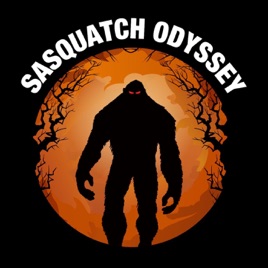
4.4
756
702
Sasquatch Odyssey
Sasquatch Odyssey-Bigfoot Encounters
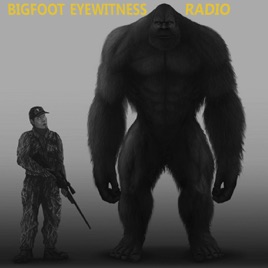
4.5
1226
412
Bigfoot Eyewitness Radio
Vic Cundiff
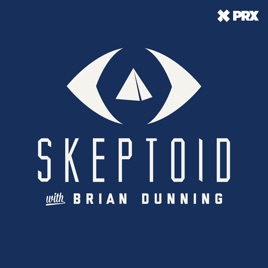
4.6
2585
937
Skeptoid
Brian Dunning
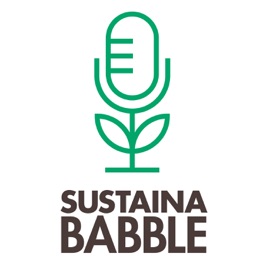
4.7
115
256
Sustainababble
Sustainababble: comedy, nature, climate change.
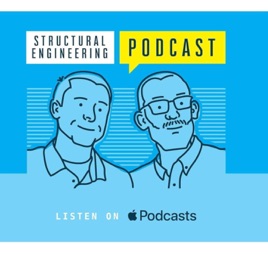
4.8
44
85
The Structural Engineering Podcast
Zach and Max
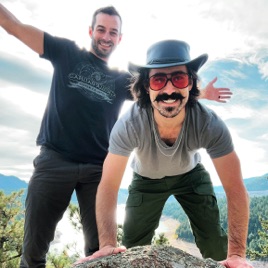
4.6
81
95
The Hifi Podcast with Darren and Duncan
Duncan Taylor, Darren Myers
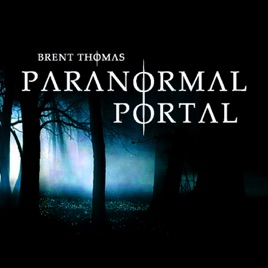
4.6
508
384
Paranormal Portal
Brent Thomas

4.7
1218
237
Bigfoot Terror in the Woods Sightings and Encounters
W.J. Sheehan
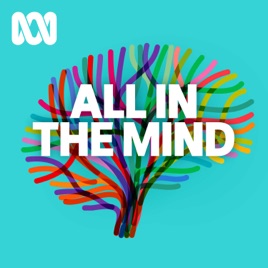
4.5
605
343
All In The Mind
ABC listen
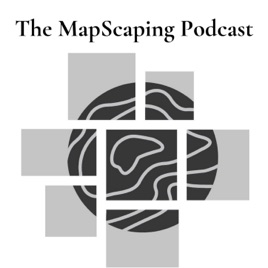
4.8
96
220
The MapScaping Podcast - GIS, Geospatial, Remote Sensing, earth observation and digital geography
MapScaping



